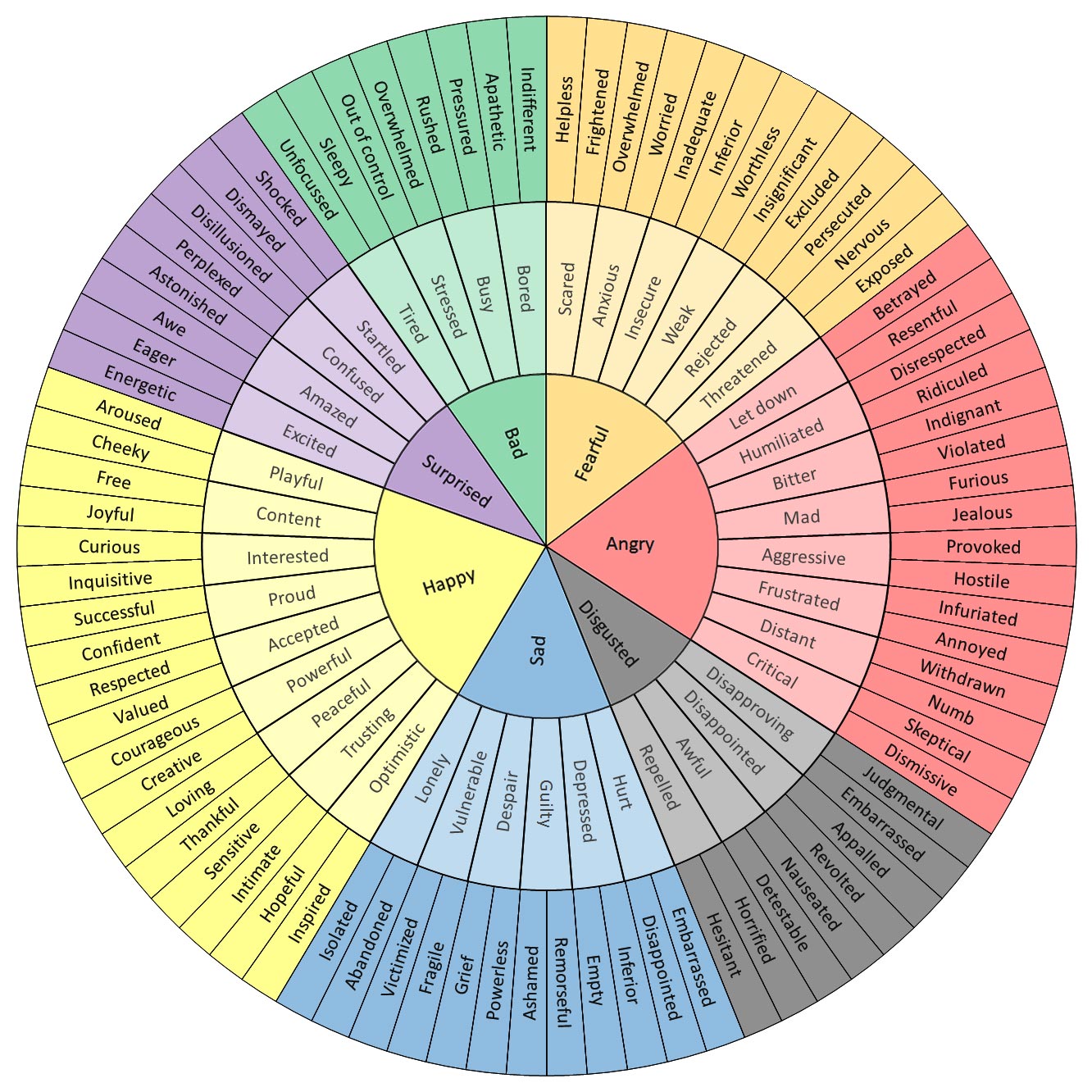This week had its own share of highs and lows but I didn't have a specific lesson jump out at me to share. I figured this would be a good chance to really dive into the different areas of Emotional Intelligence. A quick refresher on all this can be found in my EQ in Space blog post a few weeks back.
EQ is made up of four subsections: self-awareness, self-management, social awareness, and relationship management. The first place to start is with self-awareness. It is the strong base of this EQ pyramid and is really important to explore before you can even hope to manage yourself or be aware of others. It all starts by tying it back to you.
What is Self-Awareness?
Self-Awareness is recognizing and understanding your emotions and how they impact your life, your performance, your relationships, and others around you. Especially if you feel your emotions are reigned in and controlled and you are ready for the next thing, this is a very important step. Don't skip understanding your relationship with yourself! Each human comes complete with their own set of glasses that they see the world through. These "rose-colored glasses" (or whatever color tint yours have) are based on our experiences, our emotions, and our perceptions. As we grow, these glasses can grow and change too, but they are always our faces, changing the color of everything we see. No matter how enlightened, intelligent, or all-knowing you are, you will always have your glasses on. This is not a bad thing. I repeat. This is not a bad thing. The goal of growing your self-awareness is not to remove the glasses, but to be cognisant that they are there. After all, these glasses are part of what it means to be human! Take pride in them, just know you are wearing them and that they will distort your perspective on the world. This will keep you honest and curious about other types of perspectives and keep your views of yourself in check too.
Self-Awareness looks like
- Knowing and naming the emotions you have.
- Knowing what makes you feel secure, what triggers you, and why.
- Knowing yourself and your role in a larger world.
The first one sounds easy, but just like onions (and ogres), there are layers. First, let's define emotions. Emotions are your feelings based on sensory feedback from your environment or your experience. They are not just "thoughts" but oftentimes have actual physical reactions in your body as well leading to a definition in neuropsychological changes. Even the least emotional people have emotions on some level. I like to think of emotions as a feedback system, like what electrical and software coders design. But more on that later. Emotions, much like the glasses, are part of what it means to be human. Even if you don't have the extreme emotion-based reactions that get you on reality TV shows (or prison... or both), you still have felt emotions to help guide you through life.
Now the key for this one is being able to name the emotions you are feeling. Easy, right? "In this moment I feel happy. In this moment I feel angry." Well, what about excited or frustrated or overwhelmed or hopeful or hopeless or calm or embarrassed or all those other complex emotions? Do you know yourself well enough to know when you feel annoyed versus attacked? Or helpless versus overwhelmed? Right now, research indicates there are 27 different emotions that humans can feel. Even then, I can see other emotion-based words we use falling under one of these 27 categories. Being emotionally intelligent means you can tell those slight differences in yourself to help guide your next actions. You have to first get comfortable with all these different emotions. I recommend really researching them if you are interested, and don't forget to ask the hard questions like "what is anger?" I gave you a jump start on one of these emotions, awe, in my Moment of Awe blog post. While you explore these emotions, keep in mind that there are not necessarily good emotions and bad emotions. All of them are part of the feedback loop that kept humans alive for thousands of years. So don't be afraid of the "bad" ones and don't think you have to always feel the "good" ones in order to be a good person.
And let's not start with all 27 either. That is like starting off on the hardest level. I recommend simply googling "emotion wheel" and see what pops up. Pick a wheel you like. An emotion wheel breaks down emotions so the center of the wheel is more familiar with what we all learned about when we were young. There are usually only six to ten emotions to work with at this level. As the wheel goes outward, these basic emotions are broken down into distinct, more descriptive emotions at each level up. This will help your brain categorize all the different things you are feeling. Here is one of my favorite emotion wheels to start off with.

Emotion Wheel Example from feelingswheel.com
Onto the second point - Knowing what makes you feel secure, what triggers you, and why. Knowing why you feel a certain way is a crucial piece of your awareness. Bonus if you can identify how it impacts your "now" too. This probably means diving into your past and understanding events that may have altered your glasses. For me, this could be understanding how taekwondo has led to one of my core values being integrity or how my parents' love growing up altered how I give and accept love. Looking for patterns in your experiences and behaviors can be a great place to start. But this could also be more painful and traumatic for some of us. For these instances, I highly recommend getting involved in therapy to help sort these stories out. Olympic athletes all have personal trainers, you deserve to have the same for yourself in some of your Olympic-level past experiences.
And finally, once you work through you and your glasses (which you should wear with pride), you can begin to see your role in the world. As Daniel Goleman, founder of the EQ concept, says "you sense how others see you and so align your self-image with a larger reality." But in this, Goleman is talking about having "realistic self-confidence" based on your true strengths and limitations. He is not talking about having an over-inflated ego or allowing others to define your self-worth or lack thereof. It is about stepping into the larger world only after you truly know yourself.
It is definitely a process to get to a point of high Self-Awareness. Taking it step by step will help it all click into place. Starting with understanding the emotions you do have when you have them and then moving to understanding what causes them, you can eventually get to a point of showing your whole, most aware self to the world.
How to Improve Your Self-Awareness
So you are bought off on this idea and you want to get better at your own Self-Awareness? Great! There are many different ways to improve your personal Self-Awareness. Good news for you, just by reading this, mulling it over in your brain, and considering it in your life is already improving your Self-Awareness! The trick now is sticking with it and continuing to listen in to your emotions. Especially when things get tough, that is when you want to shut it all down the most. A lot of people dedicate their whole lives to being more aware of their emotions and many religions or practices have Self-Awareness teachings laced in. There are many methods, including some I found on Very Well Mind. Here are a few things that I recommend.
- Emotion Logging - Just take a notebook, excel sheet, or a phone app and do a simple log of your emotions throughout the day. Just the time and the emotion you felt, no explanations. You don't get to try to justify or explain the emotion. Only log the emotion itself, not the experience. This will get you used to noticing your emotions in the moment.
- Journaling - Now this one isn't for everyone. Personally, I can't keep a regular journal going more than a week and a half sometimes, but just having a place to express yourself or getting in the practice of writing your thoughts out once a day can be life-changing. Some people swear by it, so even if you don't think it's for you, why not just try it out? Note: some people like doing voice-recorded messages instead of journaling. That is a good hands-free option to get everything out.
- Talk to Others - Talk to people you trust to give feedback on you. Now make sure you are in a place where you can be super receptive and not defensive! Otherwise, it won't do any good. These are just people who can help you see some blind spots you may have ore reaffirm what you already know. You don't have to take their opinions either, remember they have glasses on too.
- Practice Mindfulness - This is a whole new world that is trending right now. That means there is tons of literature, research articles, TikToks, whatever your medium of choice is. I first learned of it when I was much younger in martial arts. I will be covering this one more in-depth sometime but mindfulness is about being present in the moment and is a powerful mindset shift that you can see almost immediate results in.
- Meditation - Another growing trend that I learned through martial arts. This means I may have a more old-school view on these things (which I will write a post on in the future), but there are many different ways to try it out and see if it helps you personally. If you are intimidated by it, try one of the free meditation apps or videos on YouTube as a guide. Loretta Whitesides has said she believes in the future people are going to meditate daily like how we brush our teeth now. They are going to be disgusted with the idea people didn't meditate to reset and ground themselves. I mean... how else are you going to get all that mental plaque off your brain!

Image from Insight Timer - an excellent guided meditation app
This is where your Self-Awareness journey begins! I promise you now that it is in your head, you are going to be thinking about your emotions more and more for the next few days. Go with it! See what you can discover about yourself!
There is a really great TEDTalk about Self-Awareness by Tasha Eurich. I do have to warn you, it has some truth bombs about Self-Awareness that are mindblowing... for when you are ready to hear them! In the TEDTalk, Tash calls out an interesting statistic. When asked, apparently 95% of people say they feel they have Self-Awareness. The study found only about 10-15% of those people actually did. That means we aren't even being honest with ourselves about how honest we are! And that also means it is most likely you and I both are not part of that 15%. But we can work towards it! And what better place to start than here and now?
This is such a useful and insightful blog post that not only tells about EQ but also provides useful resources such as the Emotion Wheel analysis, ways to improve self-awareness and the TED Talk recommendation. Thank you for sharing this, Bailey! You’re helping everyone to learn more and have self development!